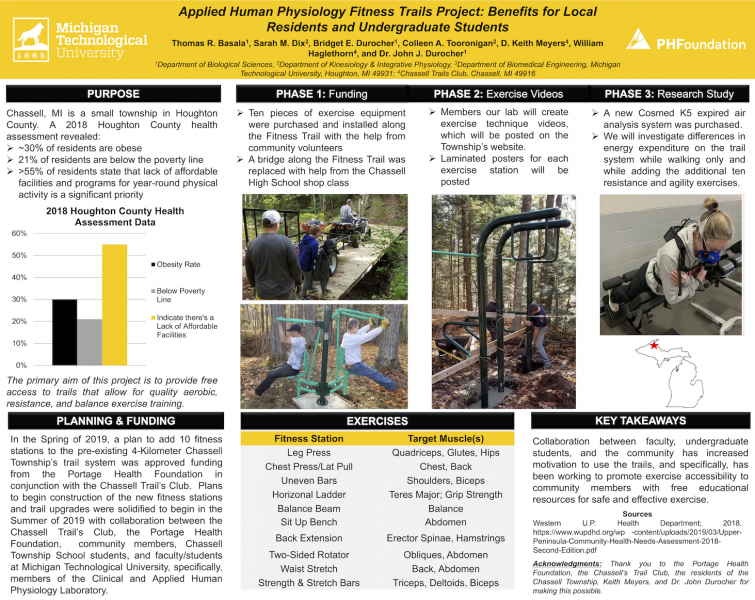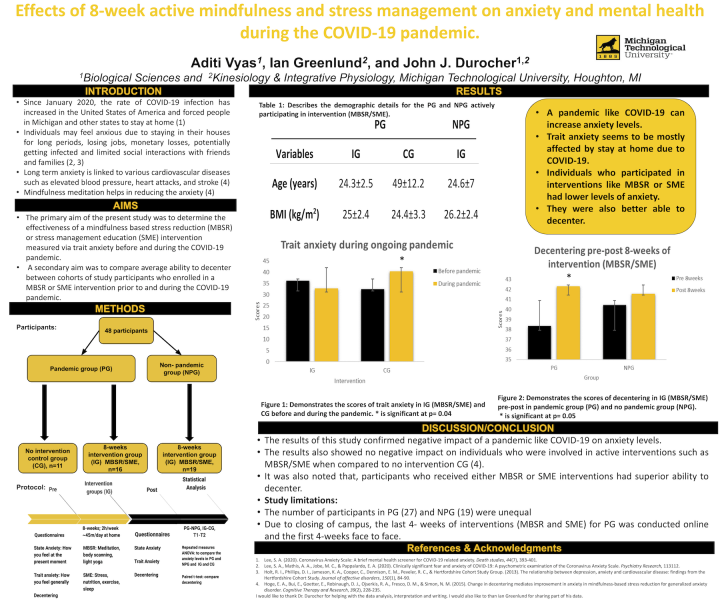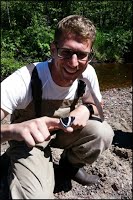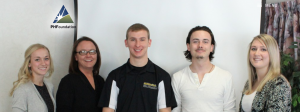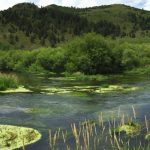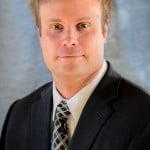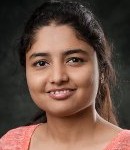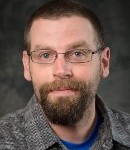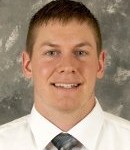The first ever Michigan Physiological Society Virtual Conference just wrapped up! It was a great collection of speakers with impressive work. Several of our students and faculty participated, including two students from Dr. John J. Durocher’s research group that earned awards for their presentations!
Thomas Basala (Undergraduate Student, Biological Sciences) earned an honorable mention for his presentation: “Applied Human Physiology Fitness Trail Project: Benefits for Local Residents and Undergraduate Students.”
Aditi Vyas (PhD Student, Biological Sciences) also earned an honorable mention for her presentation: “Effects of 8-Week Active Mindfulness and Stress Management on Anxiety and Mental Health During the Covid-19 Pandemic.”
Congratulations, Thomas and Aditi!

